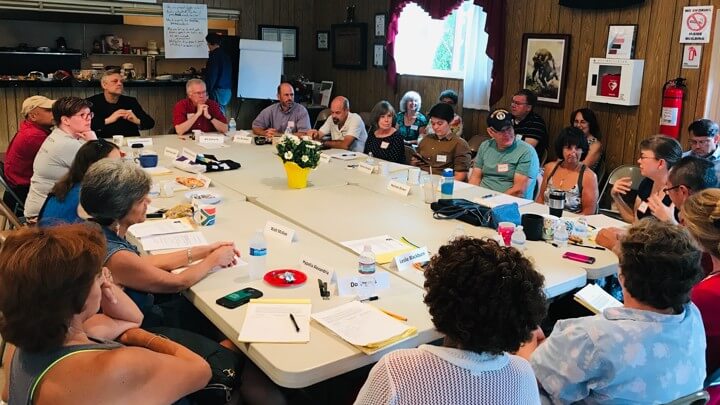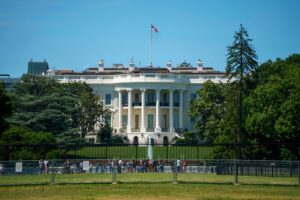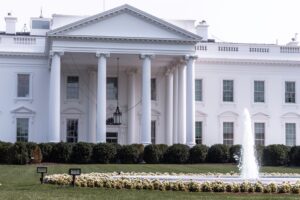David A. Graham in Atlantic Magazine December 2018
CARY, N.C.—One Saturday morning this past fall, a handful of progressive voters were seated in a neat circle, pondering why more people don’t agree with their preferred policy solutions for the country.
This kind of hand-wringing has been common among Democratic voters since the 2016 election, especially in liberal enclaves (like urban Wake County, where Cary is located) in red states (like North Carolina). But there were a few things different about this particular klatch that were unusual—chief among them the concentric circle of conservatives sitting just behind the Democrats, listening intently.
The 20 or so people, both the inner circle of liberals and the outer circle of conservatives, had gathered at a suburban church for a workshop hosted by Braver Angels, a group that seeks to promote understanding across the country’s yawning partisan divide. And this “fishbowl exercise” was showing some of the challenges in that task. The liberals—“blues,” in Braver Angels parlance—were supposed to be outlining why they thought progressive policies were best for the country, as well as what hesitations they had about them. And they were supposed to do both without referring to or blaming conservatives, or “reds.”
As the exercise showed—or as you probably already know, if you’ve had a political debate any time in the past year, or three years, or decade—that’s uncommon. In Cary, one participant kept unwittingly critiquing the Republican Party, nearly to the point of slapstick. As a chuckle spread through the group, his face fell. “Am I doing the same thing again?” Leslie Selbst asked, with mild exasperation.
He’s hardly alone in this binary view of politics. Even more than the standard understanding of polarization—the widening chasm between preferred political outcomes—the U.S. is riven by negative polarization, a loathing for the other side. To cite the classic metric, the number of Americans who wouldn’t want their child to marry someone of the other political party has skyrocketed since, roughly, the 2008 election.
Read the remainder of the article in Atlantic Magazine.




